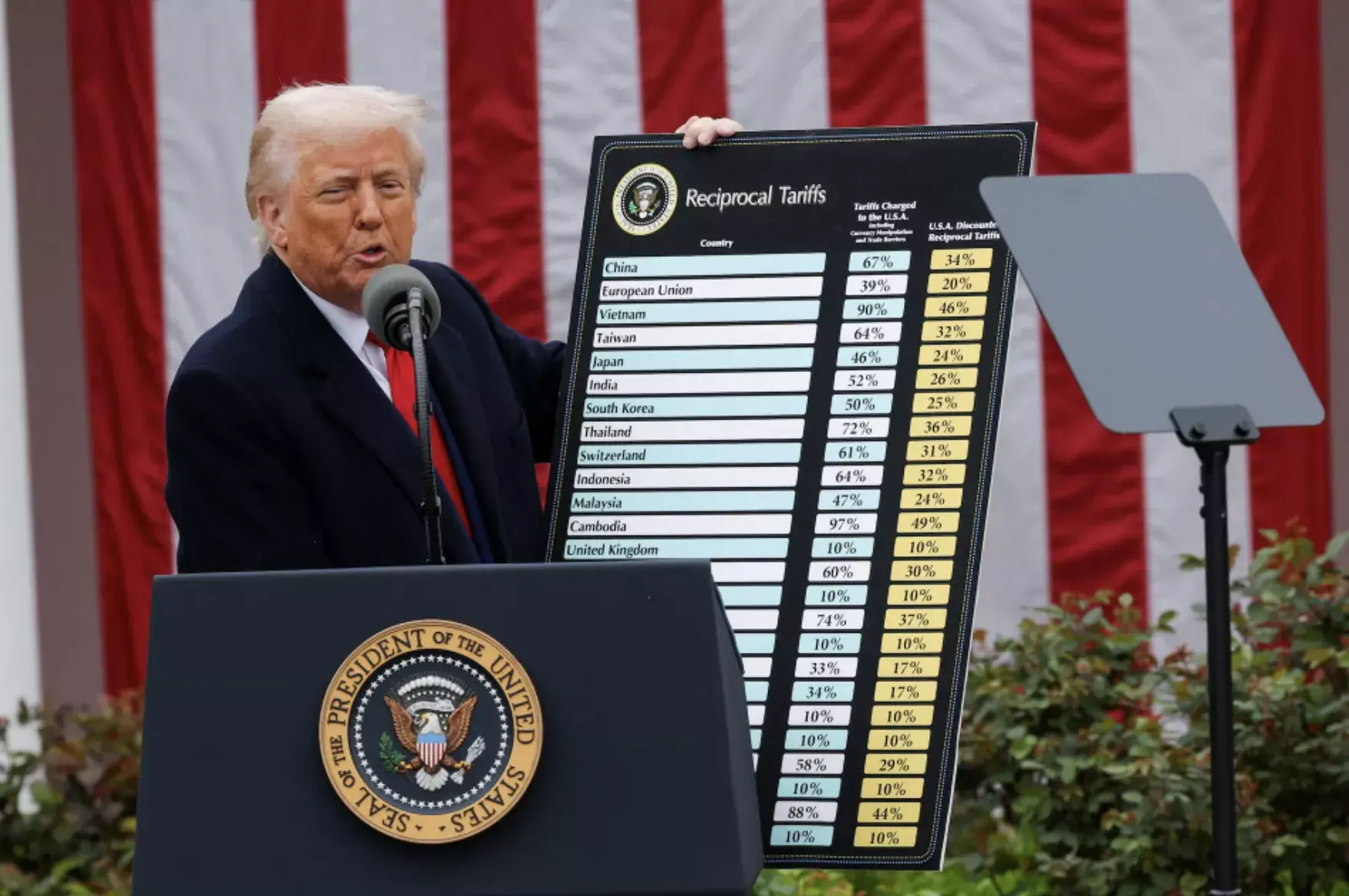
United States President Donald Trump announced a retreat in his tariff policy after a week when the government had imposed on aggressive rates on Chinese products and other business partners.
The decision generated controversy, with Trump’s advisors describing it as a strategic move, while the president himself said he had changed his mind only in recent hours.
The announcement, made through a press conference with White House spokeswoman Karoline Leavitt and Trade Secretary Scott Bessent has reduced 125% to 10% rates in a series of imported products. The measure was a significant turnaround, especially after the US government announced weeks earlier the imposition of tariffs aimed at pressuring China and other countries.
The decision to retreat was presented by Leavitt as part of a calculated strategy to obtain commercial concessions, not as a concession, as it could seem at first glance.
Bessent, in his statements, defended the action as part of a plan previously articulated by Trump. According to the Secretary of Commerce, the strategy aimed to “put China in a difficult position.” For him, the Chinese economy was “the most unbalanced in the history of the modern world” and “the largest source of US business problems.”
This position was endorsed by figures such as megain -coating Bill Ackman, who stated on social networks that the measure was “brilliantly executed” by Trump.
However, the president’s version contrasted with this strategic narrative. In an interview alongside advisers at the Oval Hall, Trump stated that the decision was suddenly made, only on Wednesday morning, after reflecting on the situation in the previous days.
“I thought a lot in recent days and found it better to retreat,” said Trump, without referring to a previously defined strategic plan. The discrepancy between Trump’s statements and his advisers raised questions about the coherence and stability of the government’s trade policy.
Economic experts have suggested that abrupt change in tariffs and lack of consistency in explanations may be a reflection of Trump’s instability of trade policy.
The adoption of high tariffs was criticized by several analysts, who pointed to the risks of deterioration in US business relations with their traditional allies and a possible loss of image as a reliable commercial partner.
In addition, the measure was also seen as a threat to the country’s economic growth, with the possibility of aggravating global economic slowdown.
The decision was made in the context of growing economic and political pressure. On the eve of the announcement, three surveys indicated a drop in Trump’s approval.
The growing concern for a possible recession in the United States, along with the negative impacts of a prolonged trade war with China, led economists to warn of the risks of unpredictable economic policies.
The instability of Trump’s tariff policy was pointed out as one of the factors that contributed to the fall of market confidence.
The situation was exacerbated by the record sales movement of US titles, observed on Tuesday (8), which was interpreted as a sign of distrust of investors.
Charlie Gasparino, a correspondent at Fox Business, reported that Trump’s decision to retreat in tariffs was a response to the economic difficulties that began to emerge, with a possible government capitulation in the face of financial market pressures.
Trump’s economic policy also faces internal resistance. Within the Republican Party itself, there is increasing pressure to moderate the radical and unpredictable posture of its administration.
Party members suggest that aggressive trade policies, especially high tariffs, may impair long -term economic growth and negatively affect diplomatic relations with allied countries.
The change in Trump’s tariff strategy can be seen in the light of its principles presented in his book “The Art of Negotiation,” published in 1987. The work has become a pillar of Trump’s public image and contains guidelines on how to achieve business success. Among the principles defended in the book, we highlight the importance of “thinking great”, “negotiating based on strength” and “being tough”.
The application of these concepts in US foreign policy became evident when Trump imposed high rates early on his term, creating an environment of tension that, when sweaty, could be interpreted as an advantageous concession.
Another aspect of the book is the use of the media as a negotiating tool. Trump believes that even negative public attention can be transformed into a strategic advantage. This could explain your willingness to make controversial and challenging ads, always seeking to maintain the attention of the media.
However, Trump’s work is also the target of criticism. Critics point out that the book omits significant failures and failures of its business career, such as the unsuccessful attempt to create a football league in the 1980s.
In addition, Biographers suggest that Trump’s Empire was largely supported by loans funded by his father’s assets, which contrasts with the self -sustained successful image he promoted over the years.
The turnaround in tariffs imposes a new question about the future of US commercial policy and its implications for the global economy. The challenge now is to balance national interests with market and allied pressures in a volatile and politically tense economic scenario.
Source: https://www.ocafezinho.com/2025/04/10/trump-recua-do-tarifaco-em-meio-a-pressoes-globais/

